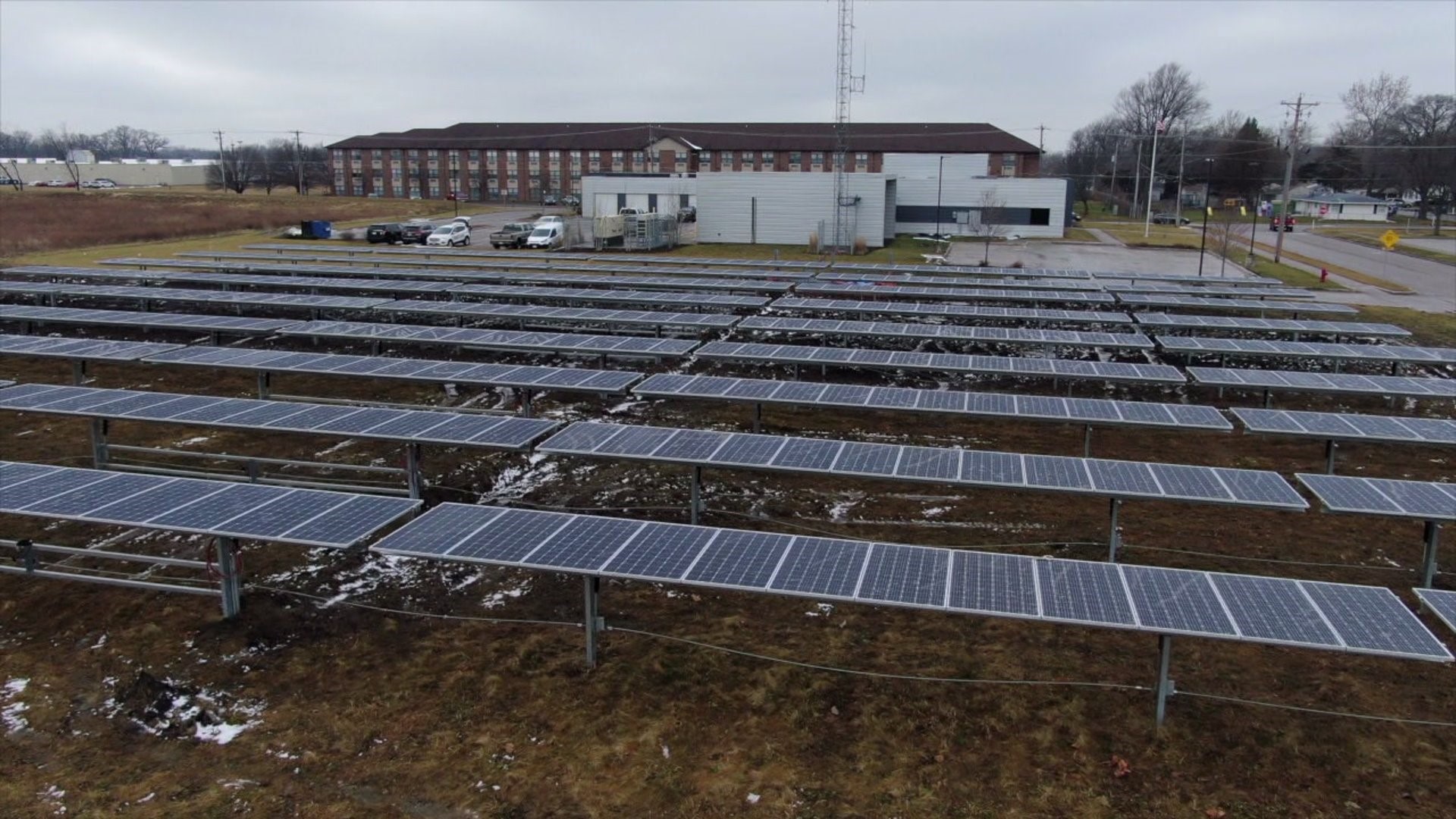SILVIS, Illinois -- The newly constructed site is now home to the first set of solar panels to be used in the city of Silvis and are the largest of it's kind in Rock Island County.
Joshua Dyer, the 4th Ward alderman for Silvis, said his home was the first within city limits to implement solar panels.
"I had no idea at the time that I was sort of breaking ground or something," said Dyer. "It makes a lot of financial sense to do solar. As well as it's clearly the right choice for the environment."
Now, years later, he is taking his idea to go green and spreading it to the rest of the city. Dyer approached the city council with hopes of getting solar on city buildings such as the fire department and city hall.
"There happened to be some land available right next to the police department," Dyer said. "So that seemed like an ideal situation to install solar."
City Administrator, Jim Grafton, said the city paid $0 to install the group of 442 panels. Instead, Dyer said the cost of construction is being paid for by investor Ben Estep, who is the owner and developer of the land where the panels are located.
The panels will rotate following the sun for maximum efficiency and provide the Silvis Police Department with 98% of its energy needs.
Police Chief Mark VanKlaveren said the city chose the department's nearly three-year-old building because the department consumes a majority of the city's budget.
"They're trying to find ways to save money for the future so with this being a new building they figured this would be the perfect place to start," said Chief VanKlaveren.
"I think this is a good way to reduce our carbon footprint in the city," said Dyer. "As well as reduce the amount of electricity and cost for that that our citizens end up bearing the brunt of."
Over the term of the 30-year agreement, the city is projected to save $253,044 and a total of $3,956 in energy savings in the panels' first year alone.
Dyer said the city worked with the developer to also have them plant natural grasses surround the panels. The grasses will make what they call "pollination stations" for pollinators like bees and butterflies.
"Pollination stations will not only keep the solar panels cool, which will make them more efficient, but having those pollinators in the area - that benefits anyone doing farming or even just backyard farming. Those crops will see larger yields."
"The leadership in the city has changed to be more of a forward-thinking city," said Chief VanKlaveren. "I think you can just kind of take a look around and see that this is a city of progress."
The solar panels are expected to be up and running by the end of January.

